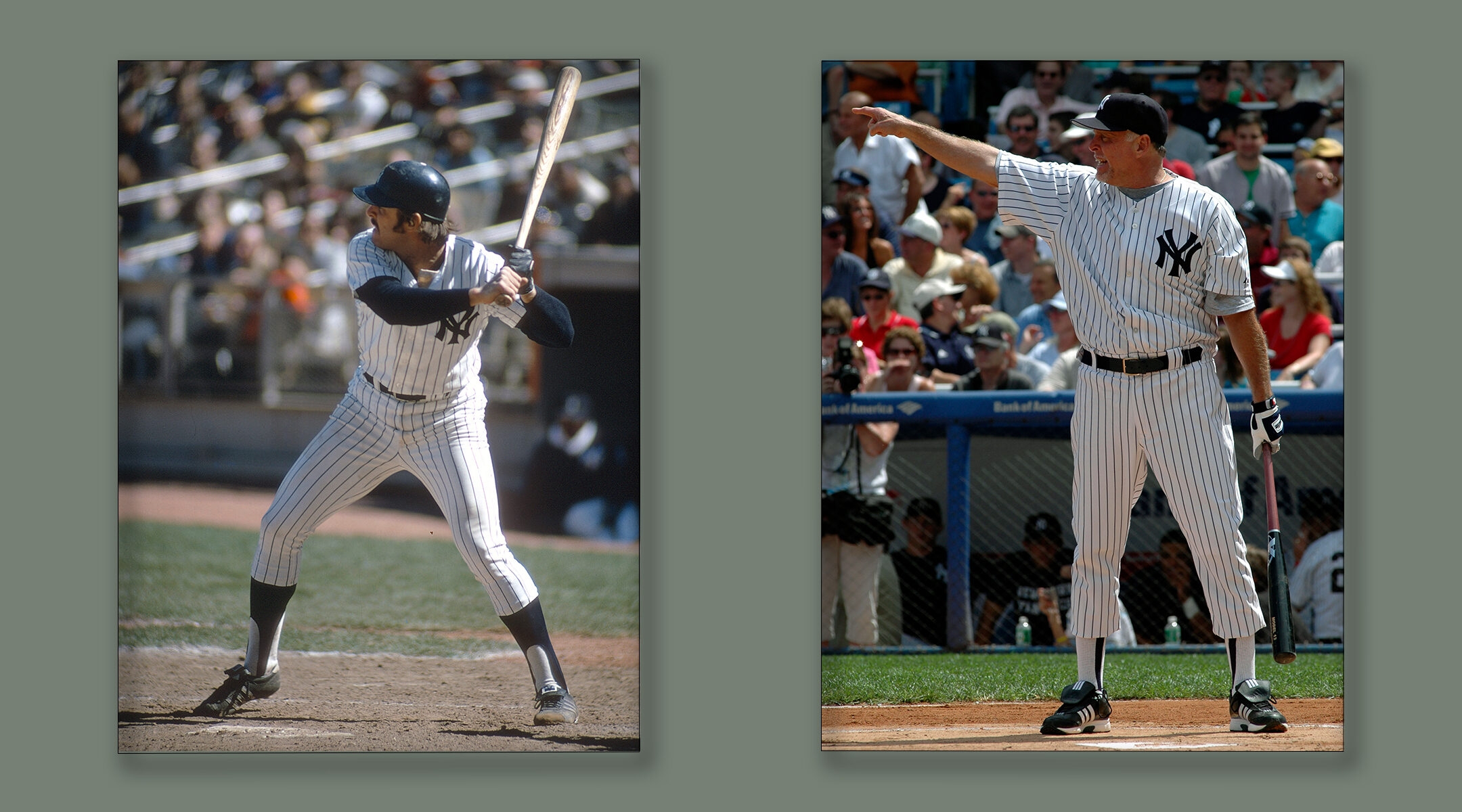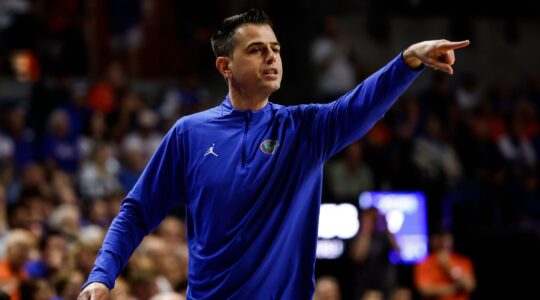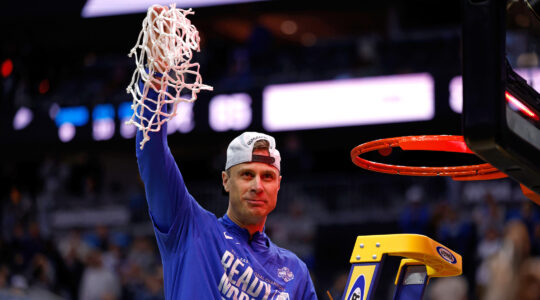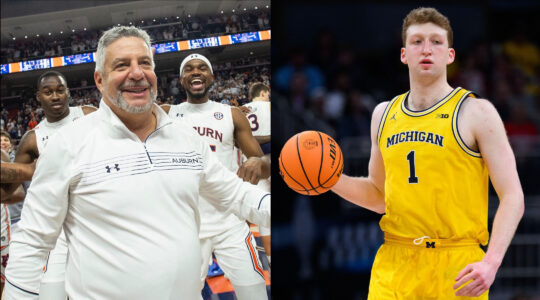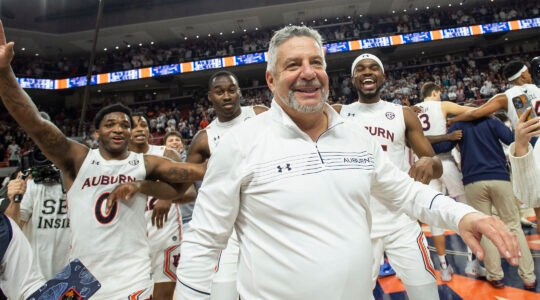(JTA) — When Ron Blomberg stepped up to the plate for the New York Yankees on April 6, 1973, he knew he was making history. But he didn’t think it would matter.
With his first-inning walk during the Yankees’ loss against the Boston Red Sox, Blomberg became the first-ever designated hitter (DH) in Major League Baseball history.
The position had been officially introduced prior to the 1973 season, allowing teams to use a substitute batter in the pitcher’s spot in the batting order. The rule was adopted only in the American League, a unique dynamic that sparked fierce, decades-long debate.
That is, until this season. The league implemented a permanent universal DH in 2022 for the first time, effectively ending the quirky practice of pitchers hitting only in National League ballparks.
Blomberg, now 73, remains proud of his place in history. It inspired his nickname and the title of his biography, “Designated Hebrew: The Ron Blomberg Story.” The former Yankee is also immensely proud of his Jewish faith, something that helped elevate his popularity in New York.
With a new baseball season underway, the Jewish Telegraphic Agency caught up with Blomberg to chat about his experience as a Jewish ballplayer, his view on today’s game (including the universal DH) and to get the story behind his “Designated Hebrew” moniker.
This interview has been edited and condensed.
JTA: I want to start at the beginning, with your career. You were the first overall pick in the 1967 draft. What do you remember about that? What did it mean to you to go No. 1?
Blomberg: I was 17 years old. I just got out of high school. I knew I was going to be extremely high. Maybe two, two and a half months before my graduation and before the draft, the Yankees told me that they might take me No. 1. Living up in New York and being a Jewish Yankee, that was a no brainer. It was an unbelievable feeling.
There are certain teams — like the Yankees, the Red Sox, the Dodgers — that have a different level of prestige to them. What was it like to be a Yankee?
You know, Chicago, Boston, L.A. — it’s nothing like New York. I mean, New York is New York. There are other great teams out there. But there’s just one city, I think, for somebody like myself as a person that was real big on his faith. Being able to play up in the greatest city in the world and to be able to put the Yankee pinstripes on and to play up in Yankee Stadium — that’s a no brainer. If I wasn’t drafted by the Yankees, I would have played collegiate sports.
What was your experience as a Jewish player in New York?
I was related to every Jewish kid in New York. I think I went to everybody’s bar mitzvah and bat mitzvah. I think I went to most of the weddings in New York. I was their Uncle Ron. I was their cousin Ron. I was a role model for a lot of kids. And you know, and that made me feel unbelievable. I did a lot of stuff for the shuls and the temples. I loved it.
What was your experience like overall as a Jew in baseball? Did you experience any discrimination or obstacles during your time in the league?
You know, I really didn’t. I came from Atlanta, Georgia. I grew up, in my era in the late ’50s, and the ’60s, and the early ’70s, I came up where the KKK was extremely big. I grew up in an area where half my teammates in high school were in the KKK. I saw cross burnings. I grew up with that. Did I see any type of antisemitic [discrimination]? I heard little things. I heard “Jewboy,” “he’s Jewing me down,” stuff like that. In the minor leagues, where I played in the small little towns, they never even saw a Jew. They don’t even know what a Jew was, so you hear things like that. But I was man enough and my parents raised me just to look the other way. And I was very, very lucky to be raised a Jew, and a proud Jew.
On April 6, 1973, you made history as the first designated hitter. What do you remember about that day? Did you have any idea how important that would be at the time?
No. To be honest with you, nobody had any idea what the DH was. I had no idea that the DH was even going to last during the season. It’s been 49 years, and it finally became universal in the game of baseball. And they should have done this a long time ago. It’s a great rule. It’s great for the game of baseball. I love it, and always will be the first and always have a place in history.
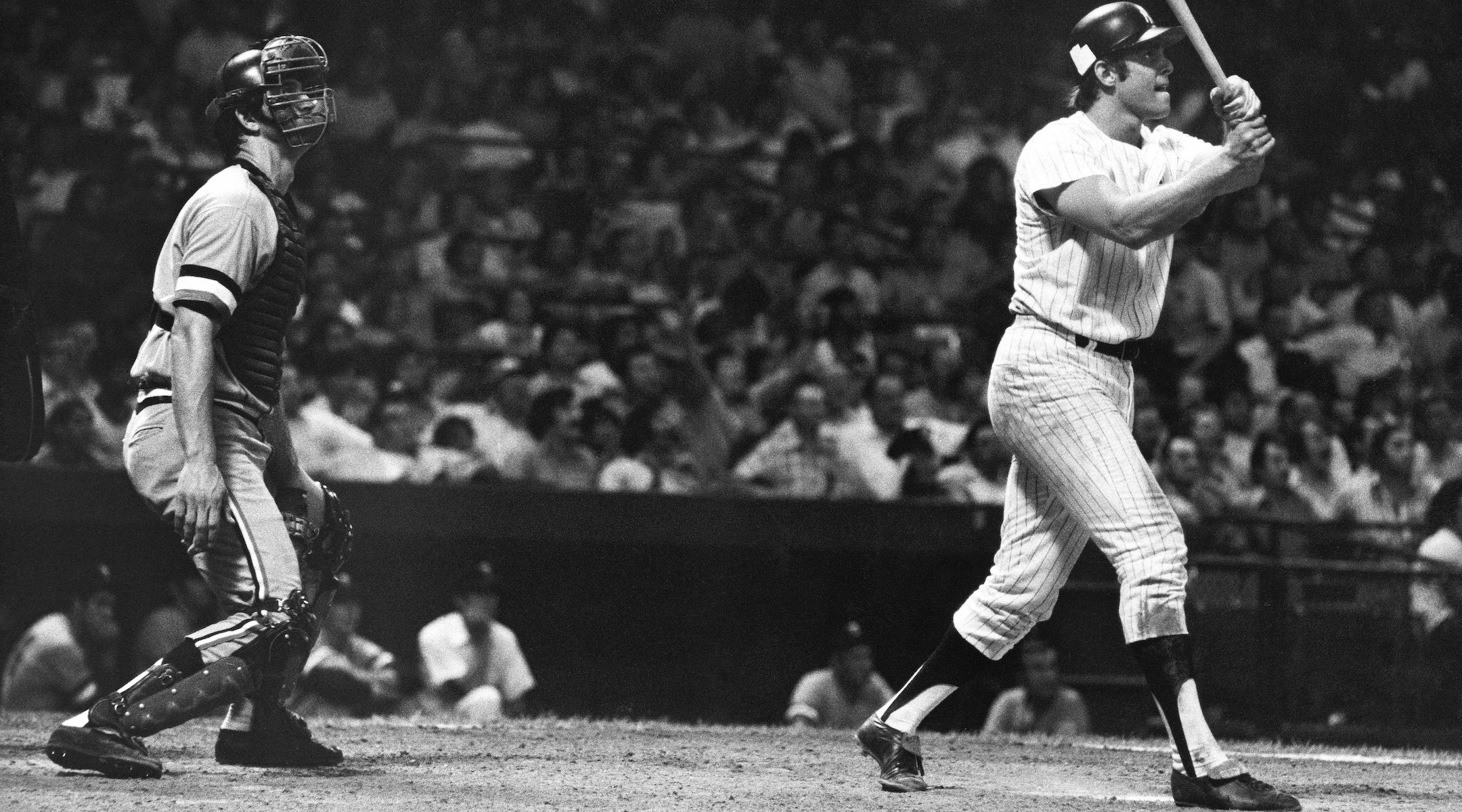
Ron Blomberg was Major League Baseball’s first-ever designated hitter. (Louis Requena/MLB Photos via Getty Images)
How did your nickname — the Designated Hebrew — come about?
I was down at [Yankees] Old-Timers’ Day, and [Jewish sportswriter] Dick Schaap was there with his son Jeremy [also a sportswriter]. Dick looked at me and he said “first DH!” I looked at him and I smiled at him, and it just came out of my mouth, I had no idea how. I said, “What do you mean, designated Hebrew?” And he said, “You gotta use that as a book.” And I wrote it as a book. And it was extremely successful. And I just wrote another book in 2021, “The Captain & Me: On and Off the Field with Thurman Munson.” Whoever thought that I was going to be an author? I barely passed English. And now all of a sudden I wrote two books, and maybe a third one might be on the way.
You were part of the inaugural season of the Israel Baseball League in 2007. I’m wondering what baseball in Israel was like as a coach and how it was different than in the States?
It’s totally different. It was myself, Art Shamsky, Kenny Holtzman and a few other coaches that came from the States. I’d never been to Israel before. I had a chance to go in 1973. Moshe Dayan and Golda Meir were there at [Yankee] stadium for Israeli night. And they both came up to me and they said they wanted me to come to Israel. I wanted to go, but they had a war there and my parents wouldn’t have let me go. And then this [league] came about and they asked me to manage over there. I get to manage, and I get to go to Israel. It was wonderful. I was very, very lucky in my life to be able to go to Israel, to see where the world started, and to be a proud Jew and get off that plane at Ben Gurion airport, and to play baseball there. Baseball over there and the states are 1,000% different. Basketball and soccer were the two big sports over there. My team was Beit Shemesh and Art’s team was Modiin. And it was like the Yankees-Mets.
I was just so proud to be represented by the Israeli people. They took really good care of us over there. But the only thing I didn’t like — I didn’t like food over there. I couldn’t eat the food. I wanted my steak and potatoes and my black-eyed peas and my okra. The first time I went over there, I asked for bagels and my matzah ball soup. They had no idea what I was talking about. I said, “we’re in Israel!”
Transitioning to today’s game, we talked about the DH rule, but I’m curious what you make of all the conversation about pace of play and the current state of the sport. What do you think the sport needs to do to attract more fans?
I think the game of baseball is like a video game now. It’s totally changed. I think if Abner Doubleday knew what the game of baseball was right now, I think he’d be rolling over in his grave. How in the world can you play baseball, and you have to look at a pitch count, pitchers won’t go for more than two or three innings? If somebody hits a home run, they take the bat and flip it 25 feet up in the air, and they look up at the stands and they make a muscle. It’s very, very difficult for me to watch the game because it became too analytical. They talk about the velocity of this, launch angle. I have no idea what they’re talking about. A home run is a home run.
Whenever I talk to someone around the game, I always like to ask this: Jews have loved baseball forever — what do you think it is about the sport that has endeared Jews to it for so long?
It’s very, very simple. If you look at the Bible, and the first verse, what does the first verse say? “In the beginning.” I always call it “in the big inning.”
Thinking back to the World Series last year, there were four Jewish players, three of them stars. You’ve got Alex Bregman, who could be an MVP candidate, Max Fried could be a Cy Young contender. What do you think that type of representation means for Jewish fans today?
Oh, it’s wonderful. I mean, when I was growing up, the only Jews were Hank Greenberg and Sandy Koufax. Sandy Koufax was my role model. Unfortunately, we did not have a lot of Jews growing up in Atlanta. I’ve played against some real big Jewish athletes in Atlanta, but the first thing they had to do is go to medical school or law school or go into mom and dad’s business. And that’s what they did. But I told my parents what I wanted to do, and they let me do what I wanted to do.
What are you up to these days?
I got onto social media. I do Zooms all the time. I do a lot of stuff with Jewish organizations. I do a lot of speaking. I did my book. I enjoy doing it and I enjoy taking care of baseball fans. There are just fans who just had a major, major hard time for the last couple of years. People have been out of work and people lost a lot of their families, and it’s been a hard time. Life has not been easy for the last couple of years. So what I try to do is make people happy. And that’s why I wrote my books.
JTA has documented Jewish history in real-time for over a century. Keep our journalism strong by joining us in supporting independent, award-winning reporting.
